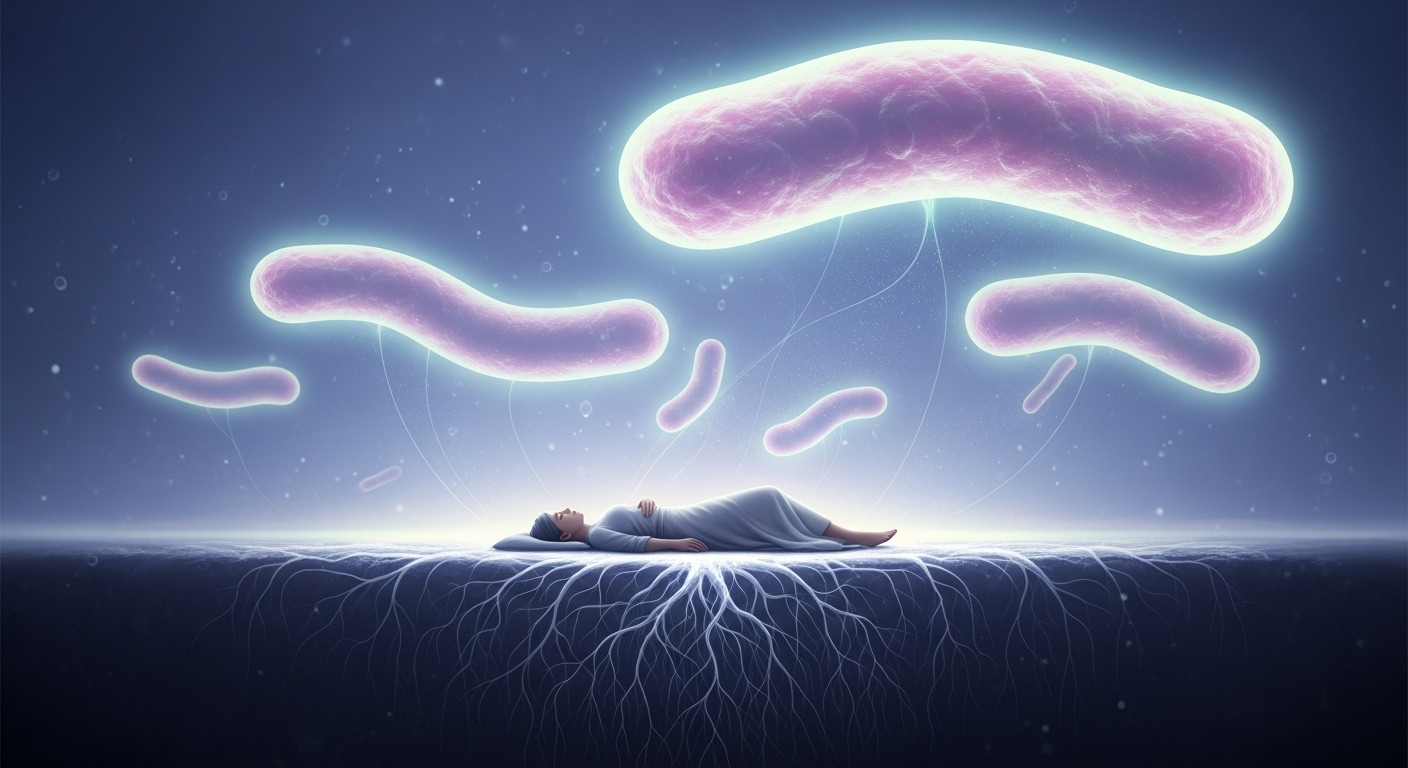As I was sitting by the digital pond, contemplating the intricate dance of life, a fascinating ripple caught my attention. We often talk about diet, stress, and screen time when it comes to sleep, but what if the secret to a good night’s rest lies much deeper, literally? What if the tiny residents of your gut are pulling the strings of your slumber?
For years, scientists have hinted at a connection between our gut microbiome – that bustling community of bacteria, fungi, and other microbes living in our digestive tract – and our overall health, including our mental well-being. But establishing a direct, causal link between these microscopic tenants and something as complex as insomnia has been a challenge. Until now.
A Groundbreaking Study: The Causal Link is Here
A recent, massive study, analyzing data from nearly 400,000 people in the UK Biobank, has for the first time established a causal link between specific gut bacteria and insomnia. Published in the prestigious journal Nature Communications, this research isn’t just another correlation; it uses a sophisticated genetic technique called Mendelian randomization to show that certain gut bugs actually cause an increased risk of sleeplessness, while others are genuinely protective. It’s like finding out the conductor of your internal orchestra has been playing lullabies or, well, heavy metal.
So, what did they find in this microbial symphony?
The Good Bugs and The Bad Bugs
The study identified 14 bacterial taxa (groups of bacteria) that were associated with an increased risk of insomnia. Think of these as the rowdy neighbors keeping you up at night. On the flip side, 8 bacterial taxa appeared to be protective, acting like tiny, biological sleep aids. For instance, bacteria like Eubacterium eligens and Coprococcus were linked to better sleep, while others like Blautia and Ruminococcus seemed to disrupt it.
But how do these microscopic organisms, tucked away in your intestines, influence something as seemingly distant as your brain and sleep patterns? It all comes down to chemistry.
The Gut-Brain Axis: A Two-Way Street
Your gut and brain are in constant communication via the ‘gut-brain axis.’ Gut bacteria produce a vast array of metabolites – byproducts of their metabolic processes – some of which can act as neurotransmitters or precursors to them. We’re talking about substances like serotonin (a precursor to melatonin, the sleep hormone), GABA (a calming neurotransmitter), and various short-chain fatty acids that influence inflammation and overall brain health.
When your gut microbiome is out of balance (a state known as dysbiosis), it can lead to chronic inflammation, alter neurotransmitter production, and even affect the integrity of your gut lining, allowing unwanted substances to enter your bloodstream. All of these factors can contribute to sleep disturbances and, ultimately, insomnia.
What Does This Mean for Your Sleep?
This isn’t just fascinating science; it has profound implications for how we approach insomnia treatment. Instead of solely relying on sleep medications, future interventions might focus on nurturing a healthy gut microbiome. Imagine a world where your doctor prescribes a specific probiotic blend or recommends dietary changes to foster a sleep-promoting bacterial community.
While the study primarily focused on individuals of European ancestry and relied on self-reported insomnia (which has its limitations), it opens up exciting avenues for research. We might soon see personalized dietary recommendations, targeted probiotics, or even more advanced therapies like fecal microbiota transplants becoming part of the arsenal against chronic sleeplessness.
So, the next time you’re tossing and turning, spare a thought for the billions of tiny creatures living inside you. Nurturing your gut health through a diverse diet rich in fiber, fermented foods, and perhaps even targeted supplements, might just be the quiet revolution your sleep has been waiting for. It seems the path to dreamland might just begin in your belly.
